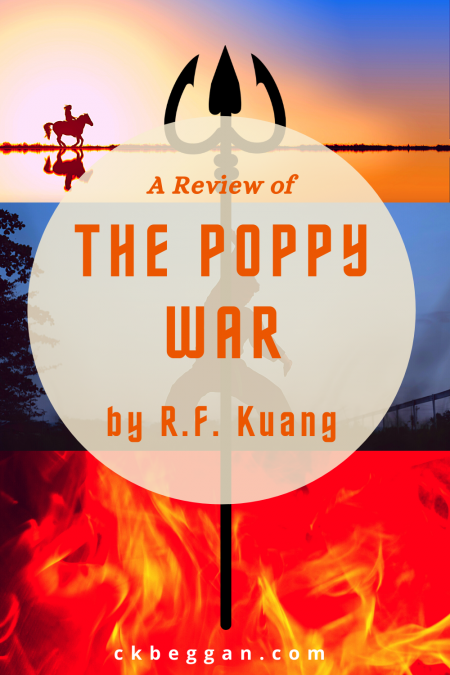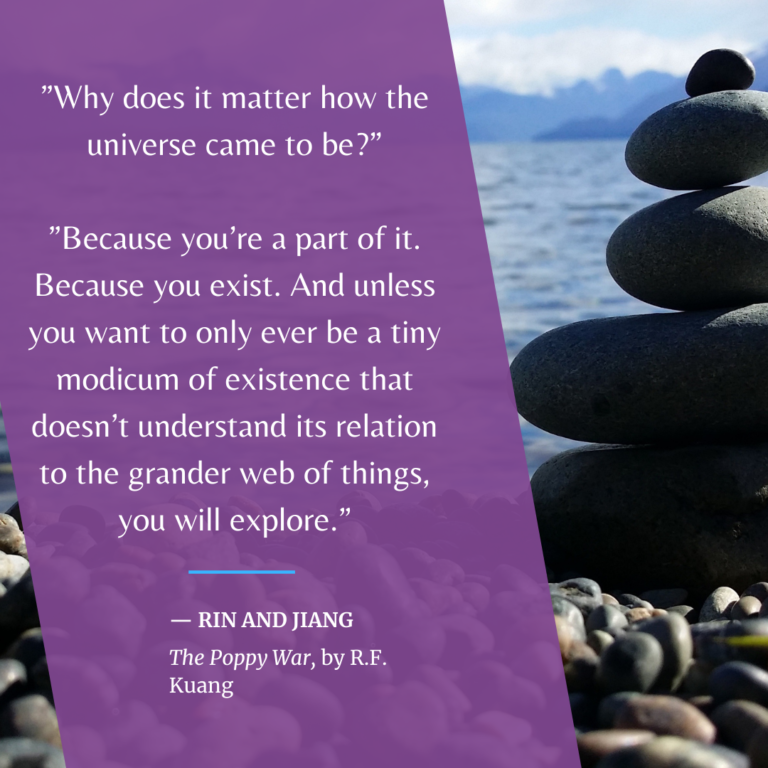
Warning: Moderate spoilers ahead. This book also requires several trigger warnings.
“War doesn’t determine who’s right. War determines who remains,” says Fang Runin (“Rin”), heroine of The Poppy War, long before the horrors of war reach her. Her journey is jarring, unexpected and progressively darker in this remarkable but flawed book.
Early in The Poppy War, Rin’s journey takes on a (far grittier and a lot less magical) Harry Potter-like quality as she enters Sinegard, Nikan’s top military academy. Rin becomes a student through ridiculously hard work, self-harm (she uses hot wax to keep herself awake as she crams for the national exam) and against the odds. She’s a war orphan living with a family of opium dealers, and her only way out of an unwanted marriage is to pass the exam and go to school. She aims for Sinegard, where only the best and brightest go, because it does not require tuition.
“The creation of the empire requires conformity and uniform obedience. It requires teachings that can be mass-produced across the entire county.”
–Jiang in The Poppy War, explaining why shamanism has all but died out in Nikan
The girl nobody expected to reach Sinegard, let alone succeed there, ends up on a strange path. Forced out of martial arts class, where she is woefully unprepared, she tries to teach herself, a move that earns her the notice of the mostly absent lore teacher Jiang.
The relationship between Jiang and Rin is unexpectedly beautiful. The eccentric master, brushed off as a madman by most people, opens the door for her to the true nature of things. Rin is the rare student who learns how to be a shaman, which involves psychedelic drugs, meditation, the existence of Nikan’s natural gods and the ability to call down their power. The girl who despised the opium addicts in her hometown changes her tune when she realizes those drugs can help her get power.
And Rin is obsessed with just that. Filled with anger and a drive for vengeance, she quickly becomes entangled with the Phoenix, a dangerous god with all-consuming power. The more powerful she becomes, the more power she desires—and that begins to scare her.
As war arrives in Nikan via the Japanese-like Mugen Federation, Rin’s days of struggle become idyllic by comparison. Author R.F. Kuang, a modern Chinese history scholar, includes deeply disturbing factual incidents when she writes about war, particularly from the Rape of Nanjing. There’s no humanity in her depiction of war, and Rin responds accordingly.
The writing and storytelling in The Poppy War is superb. Even so, it becomes difficult to read, though she handles the subject matter more sensitively than many fantasy authors. I had to think twice about whether I want to continue with the series, and wondered whether including selective parts of history is a disservice. The topic of comfort women, for example, is given a single scene, in a single location, that does not at all capture the systematic nature of sexual slavery by Japanese forces in World War II. One book (even a history book) couldn’t possibly encapsulate all the horrors and events. It’s my personal feeling that, in fantasy, there needs to be a wider gap between history and imagined worlds than this, so that victims’ real life suffering isn’t used as a plot element or given a perfunctory nod.
The evolution of Rin’s character also makes me reluctant to continue reading. Rin’s quote about war proves both prophetic and oversimplified. Her character becomes unpalatable through the choices she makes and how she justifies them (not to mention that she uses her abilities in a senseless way; there were other, more precise options that would have achieved her goals and still granted her vengeance, but that is barely discussed). If I continue reading the series, it will be in the hope that Rin can claw her way back toward some semblance of redemption and sanity—but that would be hard to believe.
To learn more about this author, visit rfkuang.com.


